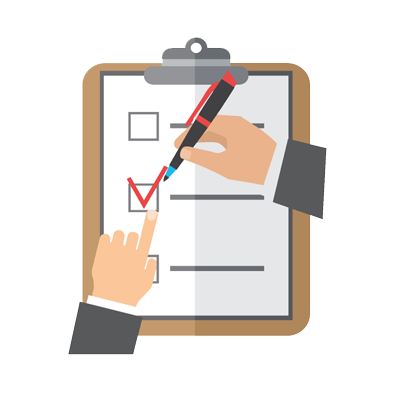List of services for which a Notary Public can charge fees?
There are different kinds of policies and regulations for every state regarding the fees of the notaries and services a Notary Public can charge. Some of the common services that notaries can charge for are as follows:
Copies
Notaries, for fixed fees, can also certify copies of specified documents. Some states enable notaries only to certify copies of power of attorney, whereas some states allow certification of other materials or documents as well. The original document, along with copies of documents, must be present in front of the notary for comparison purposes. Most notaries make their copy and certify it rather than comparing each word with the original. In some states, notaries keep a journal or copies of notarial acts. The general public can view or access a copy of the journal by making a request to the Secretary of State or courts and providing specific information in writing.
SAFEBOX has made this entire process easy and accessible for everyone. Notaries, instead of creating a new copy or comparing word by word, can use SAFEBOX to check for document integrity.

Notarizations
Generally, Secretary of State’s office regulates and fixes the fees of notaries. The fees are priced per signature requiring notarization for jurats, acknowledgments, affidavits and certain forms. If you have a 10-page document having eight signature lines, but you need only one page to be notarized, then the notary should charge you for only one notarization. However, notaries can charge additional fees for non-notarial related expenses such as travel, printing and post-signing requests.
Presentation of Documents
Generally, a lender or title insurer will hire a notary public for gathering and presenting signatures on various real estate documents. They will facilitate paying the notary for the notarization as well as the presentation of the papers.
Oaths and Affirmations
Oaths and affirmations are part of a jurat. Jurat is the regular notarial form. Notary Publics may charge for each oath or affirmation per document. If you have two affidavits needing oaths from two different affiants, then the notary will charge you for four oaths or affirmations.
Travel
There are no additional charges if you travel to the office of the notary. However, if the notary goes to your place, then the notary can charge you for the travel time. Most states do not have any specific regulations regarding travel charges. It would be best if you always ask the notary upfront for these additional charges.

Every state has specific rules and regulations regarding the additional charges and fees of notaries. You should always ask and understand all these charges before appointing the notary.
With SAFEBOX, many of the additional expenses and risks of remote signings could be removed.
Trending Technologies 2020
Tokens, Cryptocurrencies & Other Cryptoassets
Cryptographic tokens represent programmable assets or access rights, managed by a smart contract and an underlying distributed ledger. They are accessible only by the person who has the private key for that address and can only be signed using this private key. Tokens...
Decentralized Applications
As opposed to centralized applications that run on a single computer, decentralized applications run on a P2P network of computers. They have existed since the advent of P2P networks. Decentralized applications don‘t necessarily need to run on top of a blockchain...
Smart Contracts
A smart contract is a self-enforcing piece of so ware that is managed by a P2P network of computers. Smart contracts are e cient rights management tools that provide a coordination and enforcement fra- mework for agreements between network participants, without the...
Which Blockchain?
The Bitcoin White Paper was published by Satoshi Nakamoto in 2008; the first Bitcoin block got mined in 2009. Since the Bitcoin protocol is open source, anyone could take the protocol, fork it (modify the code), and start their own version of P2P money. This...
What is Blockchain?
Blockchain builds on the idea of P2P networks and provides a universal data set that every actor can trust, even though they might not know or trust each other. It provides a shared and trusted ledger of transactions, where immutable and encrypted copies of...
Our Latest Updates

Notary Public: The Short Answer
A notary public is an officer of the state who acts as an impartial and credible witness for signing essential documents. Depending upon the jurisdiction, the role of a notart public includes administering oaths as well as other official capacities. Generally, the...
How to Share a SAFEBOX document?
SAFEBOX is a digital platform that allows easy linking to the blockchain network. Users can upload, share, and verify the documents placed in the blockchain network. Sharing a document in SAFEBOX is as easy as any other platform. All you need is a document and the...
How to view a SAFEBOX document?
Viewing any document shared on the blockchain system is quite easy. You need to have the SAFEBOX account in order to view the SAFEBOX document. You just follow the following three steps in case you want to view any SAFEBOX document. SAFEBOX account login Select Share...









